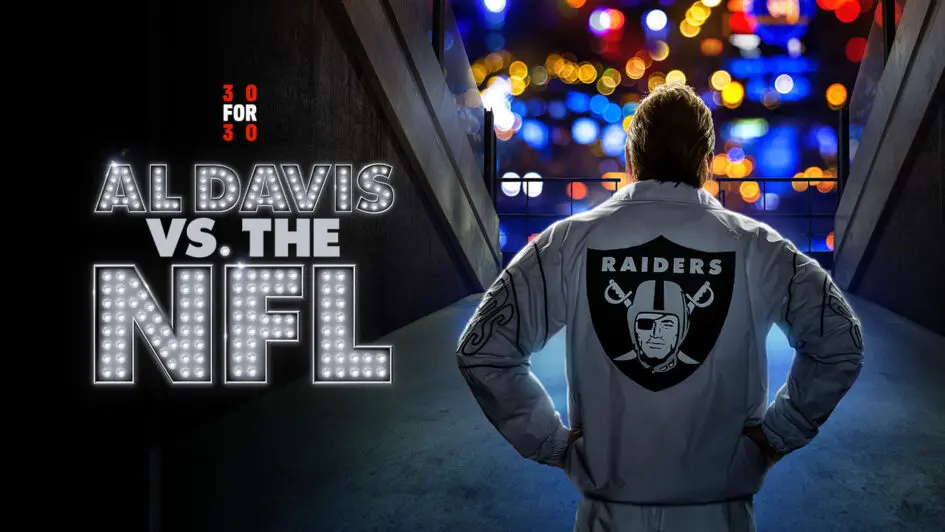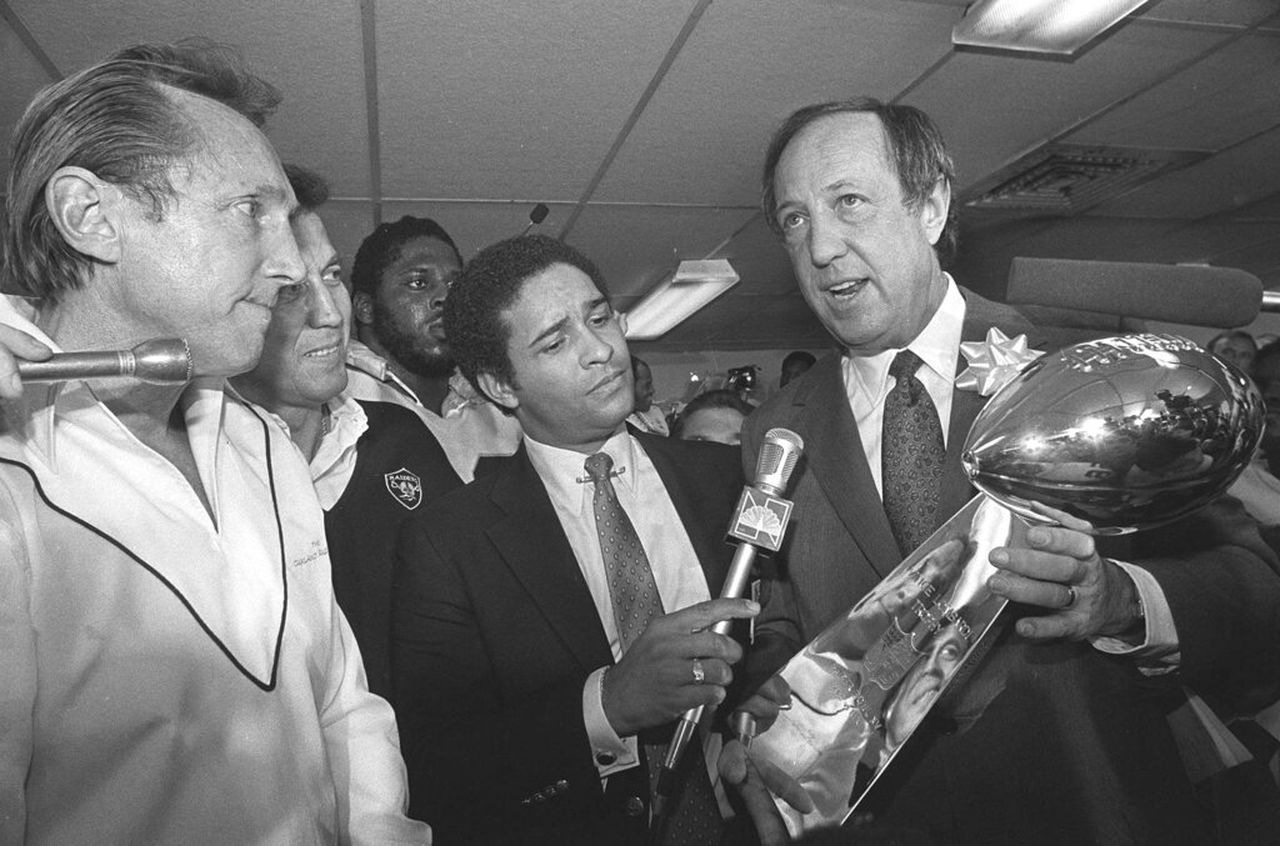Per Matt
On this, the holiest of holy days in American professional sports, it only felt natural to write up ESPN’s 30 For 30 documentary series which focused on one of the most bitter rivalries of the National Football League. It was also one which took place mainly off the playing field, where just about anything goes.
“Al Davis vs. The NFL” is the latest release in the network’s in-depth examination within the sports world. Sworn enemies duked it out throughout the media and the federal courts, while living under the mantra, “Just win, baby.” And win, the Raiders did.
From general manager-coach, to commissioner of the AFL and eventually managing partner of the team, Al Davis’ commitment to excellence was never ending. And whenever he felt shortchanged, whether by his hometown facilities or his league commissioner, he never budged. He was all about dominating adversity, wherever he may find it. Along the way, he managed to bring the highest winning percentage to pro football, along with eight division titles, seven conference title games and winning three Super Bowls, eventually getting inducted into the Pro Football Hall of Fame. He brought swagger to the league, before it was actually a thing. The same can’t be said of his sparring partner.
As the commissioner of the NFL from March 1, 1926 to December 6, 1996, Pete Rozelle had the notoriety of managing the most successful sports league in the world. He oversaw the ALF-NFL merger, the extension of the league’s regular season and the creation of Monday Night Football. But no matter what he did, he seemingly always had an enemy within the Raiders organization.
From “charming rogue” to outlaw, Davis fought the league’s leadership tooth and nail and would not be intimated. Public smear campaigns, bad-faith arrangements and accusations of breaching the Sherman Antitrust Act didn’t stop the leader from taking his football team from Oakland to Los Angeles (and back again), creating bitter enemies along the way. He fought the system seeking “geographic alternatives;” sometimes winning, sometimes losing.
The overall story in this chapter of the NFL’s history is incredibly intriguing. Sports figures, broadcasters, historians, players and owners all give their points of view, adding to the narrative. But it’s the medium that totally removes all goodwill in this episode. Deep fake technology brings each person back to life, multiple years after their deaths. At first, it’s off-putting. Then it’s obvious these character representations are filling the narrative as narrators. Neither Davis nor Rozelle were ever camera shy, so I really believe archive footage could have been used, instead, creating a sort of oral history for each one, using their own words.
Whether you believe he was a renegade or a good guy fighting against an unjust system, Davis sure knew how to assemble a football team, providing his coaches with ample resources. Building the first wild card team to win the Super Bowl, as well as holding host cities to their promises of creating state-of-the-art stadiums (which became the norm 30 years after the fact), he was a mighty force, unto himself.
“Al Davis vs. The NFL” does provide some great behind-the-scenes information of these people’s squabbles, leading to son (and current managing partner) Mark Davis’ eventual relocation of the team to Las Vegas, where the Raiders have nicknamed their home stadium “the Death Star.” Many years later, the league has prospered from Al Davis’ efforts, blossoming into a billion-dollar company.
I’m a lifelong sports fan and even I haven’t watched many episodes of the 30 For 30 documentary series. I did, however, really enjoy Joonas Suotamo’s Star Wars trek, “Finding Chewbacca.” Interviews with the principal players of each episode are usually hit or miss, and here, they are both posthumous. Not much time is allocated for actual words spoken by both sides and the majority of the episode is reserved for interpretations of both people. Boo to that, I say.
Have the network’s filmmakers totally given up in telling actual, real-life stories? Replacing them with deep-fake recreations feels very cheap. That is unfortunate. More air time should have been given to each one’s successor and contemporaries. Raiders head coach John Madden briefly makes an appearance. Tom Flores can be found in the Super Bowl award presentation, but he never speaks a word about his owner. And current head coach Jon Gruden, who famously bailed on the team, only to return years later to a $10 million/year contract, doesn’t show either. Each one of these figures could have made a great presentation about working for Davis, but none really do. The same can be said of Commissioner Rozelle (his wife briefly gives details of his failing health).
I really want to enjoy watching this series, but sometimes its presentation isn’t the greatest. Check out 30 For 30 for its documentary elements, but know the show probably won’t offer the most objective evidence available.

